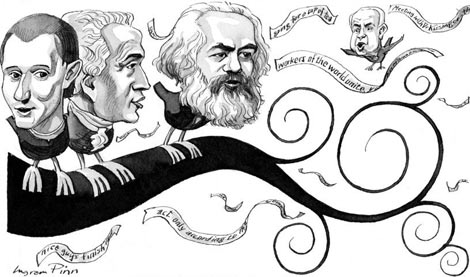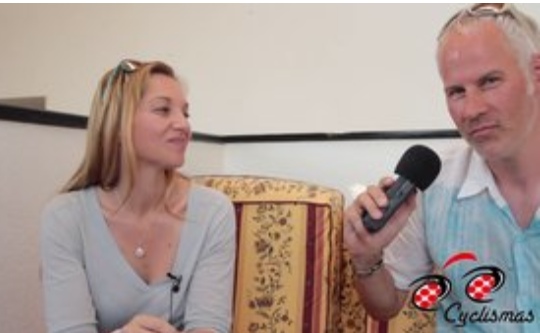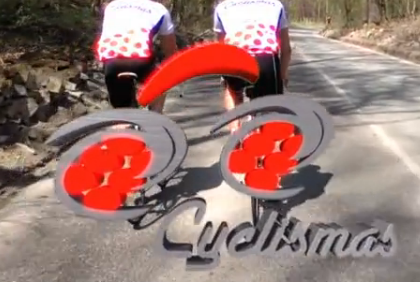Even though he gets paid to wear spandex and shave his legs as a professional cyclist for Team Traveller, James Stout is also a Ph.D. candidate in history who was once gored by a bull and also happens to be a Type 1 Diabetic. His most recent adventure is to undertake a crowd-sourced funding project for his cycling team – offering fans the option to have a stake in the cycling action. The team is committed to offering a nurturing haven for cyclists, helping them develop skills which will empower the riders and offer them a range of options to improve their employability and future prospects both inside and outside of the sport. We are pleased and proud to have James as a member of the Cyclismas team of writers.
* * * * *
I’ve put in a lot of kilometers this week; sadly many of them have been on four wheels not two. I drove all the way from my home in Catalonia back to my family in the UK for Christmas. After that, I’m flying to Southern California for some sunshine and some studying, as well as the next racing season. As exciting as southern California is, and as much as I have good friends there, I was pretty upset to be leaving my friends in Catalonia. It’s where I feel most at home and most welcome. You can say what you like about crises, recessions, work ethics and exchange rates. The simple fact remains, we have less and we live more. I’ll take ten minutes of conversation in the bakery every day over a widescreen television pumping out the banalities of Jessica Simpson’s meaningless existence any day.
The difference between the U.S. and southern Europe (I feel the UK lies in between) can, in my opinion, be boiled down to how people conceive of others. I think the categorical imperative (yup – I just started writing about Kant on a cycling blog; that’s not the kind of thinking that makes you any friends in Georgia ) means more where I live. Let me cite an anecdote: I go to the same bakery in Barcelona once a week for the fantastic bread (Barcelona Reykjavik). Once when I was in Barcelona, my card was tapped out – no credit, no overdraft, no nothing. I didn’t know this until I handed it over to buy bread, and it bounced like silly putty; so I took the loaf out of my bag and began to wonder how I could hop the train home. The baker looked up at me with a “shit my friend, you’re in trouble” look, and I got the feeling that a means-based interaction would have ended there. But this one didn’t. He forcefully returned the loaf to my bag, along with one of yesterday’s croissants and ten euros for the train. “I read about what happened to you in El Pais, with the cycling team; we don’t let that happen to people here.” I was pretty touched by this. A week later I was even more touched, when I returned after flogging some books and bike parts to pay him back. He wasn’t having any of it. “I run a bakery, not a bank.” Isn’t that the antithesis of the greed which saw actual banks collapsing?
Treating people as an end in themselves, not a means to an end, is what differentiates the culture I love from that which I can’t understand. I share a language with people in the USA, a print culture, and common tastes in music and art, but sometimes I feel like I cannot communicate. My Catalan is far from exemplary but the understanding is so often complete. This isn’t to say that there aren’t wonderful, gernerous, friendly people in the U.S. – there are. But the culture doesn’t promote this way of thinking and I think that is a real crisis.
Sadly, this people-as-means-based thinking is pretty embedded in cycling. In a recent Twitter exchange with a few people, the idea was expressed that cycling is corrupt because of one or two individuals at the top. Now far be it frome me to suggest that people go and read Marx (because clearly, if someone’s solutions don’t work that means their analysis of the problem is also flawed, right?), but I’m pretty sure we’re dealing with a superstructural myopia here. It’s the substructure, the system, that’s flawed. The machine will keep burning up young men and popping out rich old men for as long as it continues in its current mould. For as long as contracts are temporary, and riders self-interested and un-unionized, then teams will have no longevity. And while I’m at this theme, can we please stop suggesting that Jonathan Vaughters would do anything differently? I’m sure he’s a nice man and I admire our common taste in facial hair, but go and ask Dan or Trent if they feel like he values them as people or merely as generators of income.
I can see all the objections coming in now so let me dismiss the ludicrous counter arguments before you tire out your fingers in the comment box: “It’s a professional sport, that’s how it works,” “Who gave you the right to be a professional?” etc., etc. Fine – it’s a professional sport, so you won’t object to the competitive advantage I can gain in the marketplace by doping, then? Presumably in this market-focused peloton, the buying and selling of races would be completely acceptable (and while we’re at that – there’s plenty of evidence that Armstrong paid Basso, but neither of them fits an ethnic stereotype quite as well as Vino). You’re all going to say “No” now, aren’t you? Doping isn’t okay, but why? Because you just feel it isn’t (and let’s face it, it’s NOT dangerous [see Lopez 2010, 2011] ). Well, once you find yourself in this position of self contradiction, consider this – are your feelings that doping is wrong really stronger than your feelings about those of us who earn –or try to earn – a living on the bottom rungs of this sport and then get shoved off once we’ve been burned out from racing too often in races which are too long?
What we need is a kinder, gentler, cycling – one with longevity of teams, with contracts that let riders plan for the future. One which values riders, mechanics, soigneurs, and directors as people and not products. One which develops other skills in riders at lower levels, giving them options outside the sport which empower them in negotiations with teams. A cycling in which we perceive our common interests as stakeholders, not merely as individuals fighting for the scraps from the high table.















3 Comments
Nice. Self-indulgent, gratuitous America-bashing from a Brit who is a PhD candidate at UC San Diego. Well, I for one am getting annoyed with smug Europeans. George Bush ain’t in office no more.
1. Yes, in Southern Europe you have authentic conversations in charming bakeries, but in the US the alternative is watching Jessica Simpson. A compelling point. I’m nervous about continuing.
2. Your anecdote is so biased it’s surprising you even used it. The baker, who knows you are a pro cyclist was sympathetic with your plight. Oh, but that would never happen in the US. Except it happens all the time.
3. Your statement of Kant’s (second formulation) of the Categorical Imperative is incorrect. The imperative does not rule out treating other people as a means to our own ends. We do it all the time, must do it all the time, and it is perfectly legitimate on Kant’s view. The imperative requires treating every person as an end, and never SOLELY as a means. Further, your baker example is not even a clear case of one person treating another as an end in himself in the way Kant thought of it.
4. There’s likely a serious equivocation in your use of “culture” in the following:
“This isn’t to say that there aren’t wonderful, gernerous, friendly people in the U.S. – there are. But the culture doesn’t promote this way of thinking and I think that is a real crisis.”
American culture doesn’t promote treating other people as ends? I don’t know what culture you’re talking about. I was taught not to lie, to tell the truth, to never use other people to their own detriment, etc. But, perhaps, you’re talking about American pop-culture instead? It seems you are when you compare talking with a baker in Barcelona to suffering Jessica Simpson. You’re making the mistake a lot of Europeans make. You’re confusing the way the US, Americans, and American culture are represented in American pop-culture with the actual thing. Noone in the US with a half a brain believes that the crap in movies and on TV accurately represents the US, American culture, or Americans. And, this leads to my last point.
5. Dude, you’re gazing at shadows on the wall in Plato’s cave. You’re making judgments about reality on the basis of manipulated images and representations, rather than by carefully observing, studying, and thinking about the real thing.
As a California taxpayer who will be partially funding your graduate education when you gain residency in CA, I expect better.
@Antieuro
Is there any real difference between american culture and american pop-culture? Is there such thing as “american culture”? As a Spain taxpayer I find very unpolite and arrogant to reproach someone for benefitting from our (shrinking) welfare system, even more if the reproached will be earning his bread and butter meanwhile and therefore becoming a taxpayer himself.
Oh, I have just realized that maybe you do not know the meaning of the expression “welfare system”…
And no, I am not the owner of the Barcelona’s bakery.
@CulturaCiclista
That you simply ask the question whether there is any difference between American culture and American pop-culture is evidence for what I was talking about. Europeans, and others around the world, I imagine, can and do confuse the two.
I’m unpolite and arrogant? Really? A youngster who’s spent little time in the US tells me that Americans think about other people as means to an end and not as ends in themselves. Maybe you don’t see it, but this piece is a moral condemnation of Americans. It’s made by a youngster who’s spent little time in the US, knows very little about actual Americans, and who, at the same time, is or will benefit from a prestigious US institution, the University of California. So, how does it go? He can condemn the moral character of Americans, based on bad reasoning and little experience, but if anyone tries to reply, they are “unpolite and arrogant”. Wow. That it makes sense to you to talk like that just indicates to me you’ve got some really virulent anti-American biases. And, I suspect, you’ve gotten them watching TV.